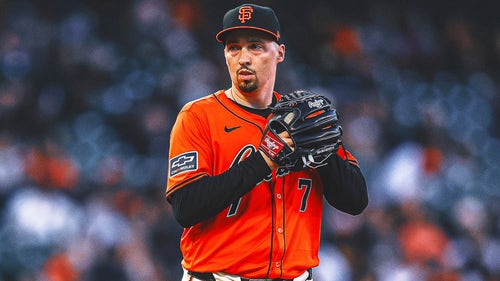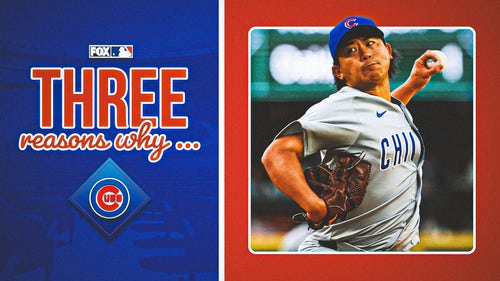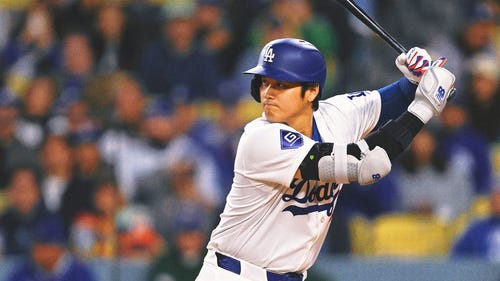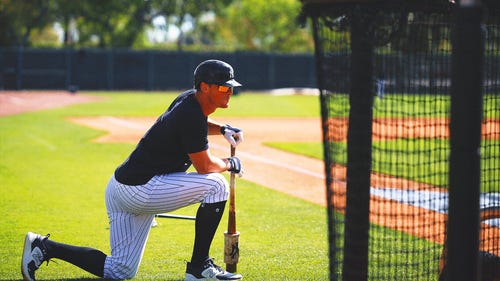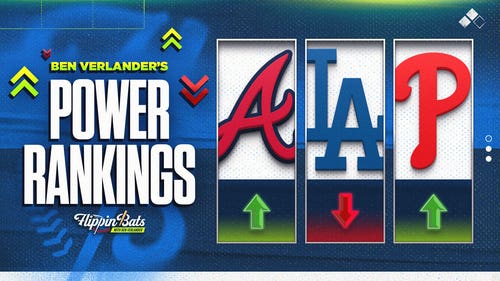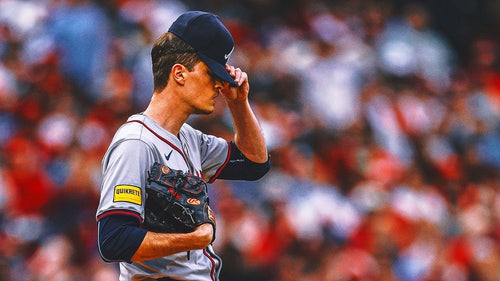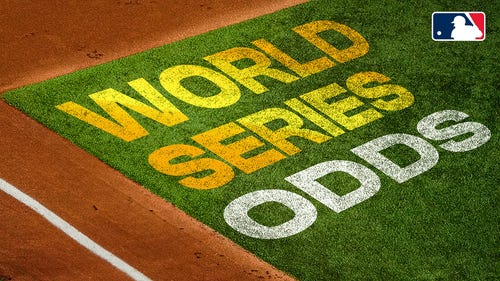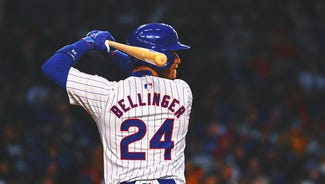
What's at heart of Young's trade demand?
Here are the Rangers, coming off their first World Series in 39 years in Texas. They should be celebrating their postseason triumph over the Yankees, happily announcing season-ticket increases, reveling in their new ownership.
Instead they held a conference call Monday to explain why one of the most popular players in franchise history wants to be traded — and the player, Michael Young, responded by torching the organization.
Evidently, Cowboys owner Jerry Jones doesn’t hold a monopoly on bad PR in the Dallas-Fort Worth area.
“I asked for a trade because I’ve been misled and manipulated and I’m sick of it,” Young told FOXSports.com. “. . . I got pushed into a corner one too many times. I couldn’t take it any more.”
Young would not go into specifics, but hinted at a rift with Rangers general manager Jon Daniels, saying, “I know the truth. And so does JD.” Daniels declined comment, but during a conference call with reporters earlier Monday, he referred certain questions to team president Nolan Ryan because Ryan had spoken with Young more recently.
Daniels has done a masterful job rebuilding the Rangers and is negotiating a contract extension with the team. But this is twice in three years that Young has asked for a trade — his first request came in 2009, when the Rangers wanted to move him to third base to clear shortstop for Elvis Andrus.
Why can’t Daniels get along with a player who is universally admired? And will Young’s teammates now harbor doubts about the GM?
It’s pretty clear that Young believes the Rangers were duplicitous, telling him they wanted him while trying to trade him. It’s also pretty clear that the relationship between player and team is damaged, probably beyond repair.
Yes, Young is guaranteed $48 million over the next three seasons. Many fans believe that the story ends there, that Young should just shut up and play where the Rangers tell him. But elite athletes don’t think that way. Their pride is part of who they are. And if they perceive that they are getting pushed around at work, they don’t like it any more than you or I.
That’s Young’s perspective, and the Rangers surely have their own — namely, that they’re trying to put together the best team possible, any way they can. At this point, the back-and-forth is almost irrelevant. Almost.
The bigger issue, by far, is that the Rangers’ culture might be poisoned, jeopardizing all of the remarkable things that the franchise accomplished last season. Sabermetricians who dismiss the importance of chemistry should pay close attention to the 2011 Rangers. The Young affair could be that unsettling.
If the Rangers trade Young, they will lose their clubhouse beacon, a player recently described by manager Ron Washington as the straw that stirs the team’s drink. If they keep Young, they will enter spring training with a major distraction, one that could divide the team.
Young said he will not rescind his trade demand the way he did in ’09, when he agreed to move to third to accommodate Andrus. He did not comment when asked how he would react if he was still a Ranger at the start of spring training.
A trade is inevitable. Heck, it seemed inevitable the moment the Rangers began flirting with free-agent third baseman Adrian Beltre at the winter meetings. The Rangers perhaps should have moved Young then, and certainly once they signed Beltre in early January.
Young, 34, said then that he would become the team’s primary DH, even though he is too young, too athletic for such a one-dimensional role. Meanwhile, the Rangers kept pursuing other DHs, losing out on free agent Jim Thome, then obtaining Mike Napoli in a trade.
Somewhere along the line, Young grew disgusted.
He said initially Monday that he did not object to the Rangers’ continued efforts to trade him, but later confirmed “a breach of trust” to ESPN.com. Club officials kept saying they would find Young his usual 600-plus at-bats, using him at first, DH and as a backup at second, short and third. Either they did not communicate the plan effectively, or Young questioned their credibility on that front, too.
The idea of Young as a super-utility man makes sense on paper — one rival GM says it is the optimal way to maximize Young’s offensive and defensive ability. The problem is, this isn’t fantasy baseball. Players cannot be plugged into positions like robots — especially not accomplished players such as Young.
The Rangers could reasonably expect Young to accept a secondary role to Beltre, a superior defender and slugger, and Thome, a possible Hall of Famer. But Young, a career .300 hitter, probably isn’t enamored of the possibility of losing at-bats to Napoli, a player the Angels couldn’t wait to move, and first baseman Mitch Moreland, a second-year player who still is largely unproven.
So now the Rangers are stuck. They say they want any trade of Young to be an “upgrade,” but good luck trying to get quality players and clear Young’s remaining $48 million obligation while the entire industry knows the player wants out.
Some rival executives interpret the Rangers’ stance as an indication they do not want to trade Young. Club officials are split on the merits of such a move, major-league sources say. If there is a disconnect — and the Rangers strongly deny sending mixed messages to other clubs — perhaps the Rangers’ internal division is the reason.
One thing is clear: The Rangers need to trade Young, and soon.
Sad as it will be for everyone, this unhappy marriage must end.






































































































































